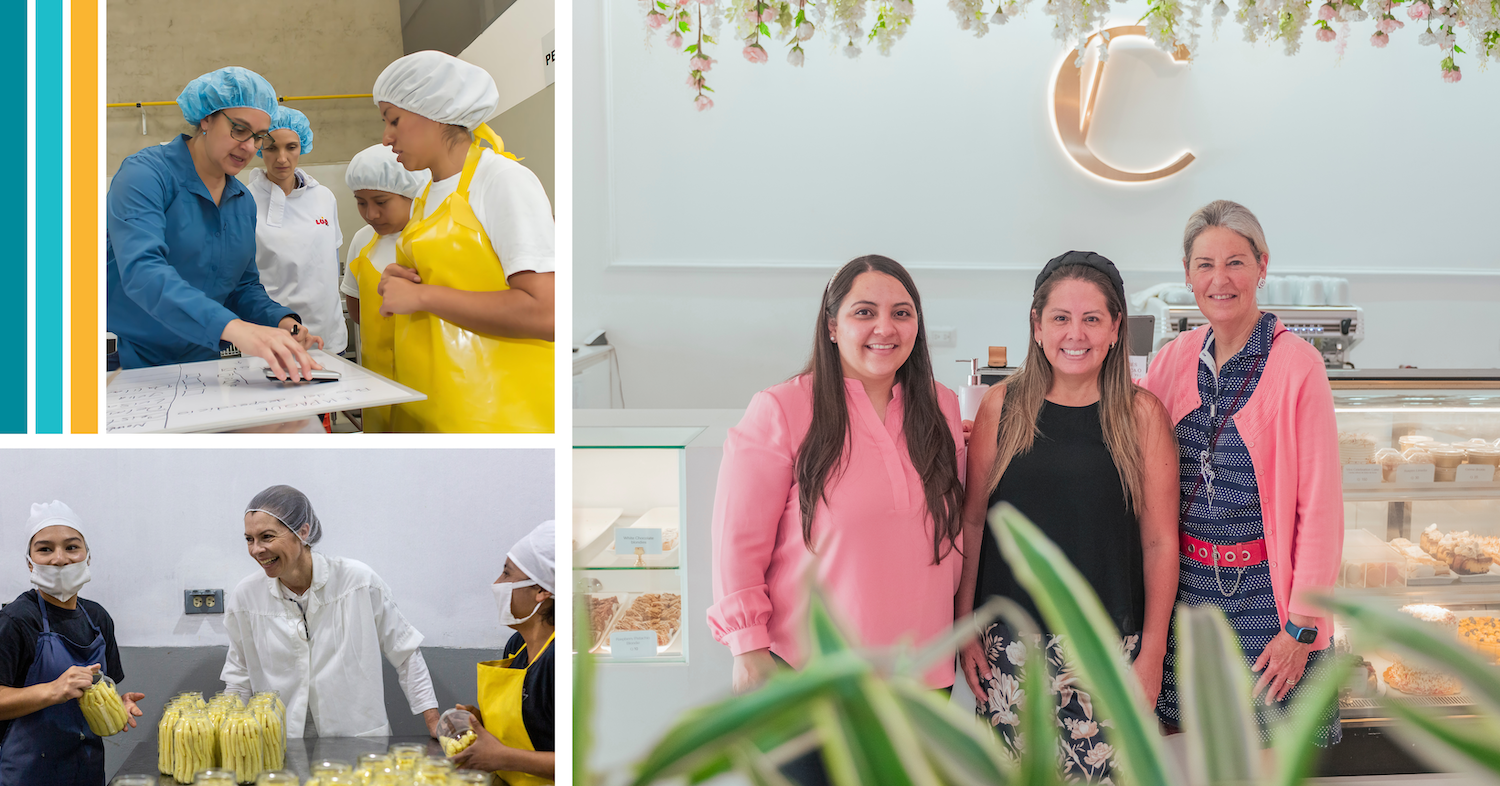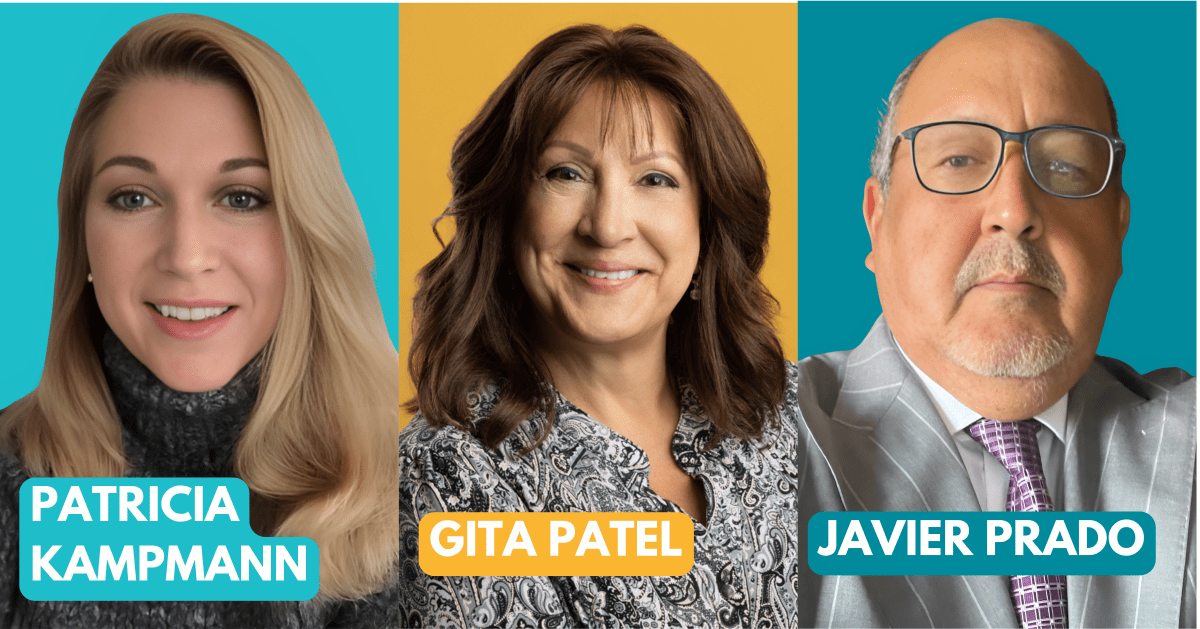Kathleen King was and is a perfectionist. She began her career as an entrepreneur at age 11 selling home-baked chocolate chip cookies from her family farmstand in a prosperous resort community on Long Island. She spent hours tinkering with the recipe until her cookies were so irresistible, almost addictive, that tourists and locals thronged to the farmstand.
Kathleen returned to her passion for cookies after college and became a full-time entrepreneur when she opened Kathleen’s Bake Shop in Southampton, her hometown. It was an instant success. She then established a wholesale business selling directly to retail outlets across NYC and Long Island to keep the business going in the off-season. She employed locals who lived in the community year-round because she wanted to ensure the consistency and quality of the product. After 20 years of working 24/7, she was overweight, stressed to the limit and despite being financially successful, was unable to enjoy the fruits of her labors.
Searching for Work-Life Balance
Kathleen took on two partners in the hope that it would relieve her of some of the burdens of running the business and allow her to have a life outside of work. Instead, her partners fired her and ran the business into debt. Kathleen admits that she made a naïve choice to hand two-thirds of her business to her bookkeeper and her brother without any formal contract and no money exchanged.
“I made a terrible business decision because I trusted people,” says Kathleen. “Now I trust people with my eyes open!”
A year of lawsuits ensued, and Kathleen lost the business, the name Kathleen’s Bake Shop and owed $200,000 in debt. She had nothing left except the building she had purchased to house the shop.
Lessons Learned
Kathleen decided to rebrand the business, but this time she had a plan: In 15 years, when she turned 55, she would sell and retire. And that is exactly what she did. She launched Tate’s Bake Shop, named after her father, in the same building that had previously housed Kathleen’s Bake Shop. The bookkeeper and her brother moved the still functioning Kathleen’s to another location in the village, and less than two years later they were out of business.
The small local community rallied around Kathleen. “It was like a Hallmark made-for-TV movie,” she says. “They picketed the original Kathleen’s Bake Shop, and when the tourists came, they told them the real Kathleen’s was now called Tate’s. So the community was a big part of my strength throughout.”
What Changed?
Kathleen claims that 90% of her business expertise came from losing the first business and starting over. When she launched Kathleen’s Bake Shop, she was very emotionally attached to its success, working day and night believing that nobody could do it better than she could.
“After losing the business, it was like watching something evaporate into thin air. In the blink of an eye, it was all gone,” recalls Kathleen. “I was 40 years old, had no money, no husband or children, my youth was gone, and all that hard work was wasted. So I said, OK, I’ve got to get out of this next endeavor whole. I know how to work hard, but this time I knew how to let go.”
Over the next six months, Kathleen launched the business, started hiring the right people and, importantly, let them do their job. Giving her staff responsibility and holding them accountable were key. As she puts it, “The Kathleen that ran Kathleen’s Bake Shop could never have let that happen.”
As Tate’s Bake Shop took off, Kathleen was able to offer more and better-quality jobs to the local community, including health insurance and profit sharing. Training and promoting from within made even the entry-level roles attractive. “Promoting from within gives people a sense of value,” Kathleen says. “They know they are not stuck, that they have room to grow.”
“Don’t be afraid to surround yourself with people who are smarter than you are,” she advises. “If you are lucky enough to find the right people and can provide them with the environment to thrive, you will succeed. The wrong people can just ruin your life.”
The Third Act
True to her plan, Kathleen sold the business to a private-equity firm at the age of 55. She stayed on for four years to ensure continuity and recipe development. After that she looked for her next act and found Bpeace.
“I love the Latin American community,” Kathleen says. “So to be able to give back to them by volunteering with Bpeace brings it full circle because they have given so much to me. I also understand the entrepreneurial businesses Bpeace supports in Central America and the emotional attachment the owners can have to their businesses, because I experienced the same thing with Kathleen’s Bake Shop.”
Kathleen is the Honorary Food Industry Chair for our 20th Anniversary fundraising event and has made a generous contribution to supporting our programs that empower entrepreneurs to grow and create jobs. She has been a Bpeace volunteer since 2017, sharing her industry knowledge in person with multiple entrepreneurs in Guatemala and mentoring women business leaders in our Women Forward program.
Key Takeaways for Entrepreneurs:
- Develop a long-range business plan and an exit strategy or a succession plan.
- Surround yourself with people you can trust.
- Empower your staff to own their roles.





